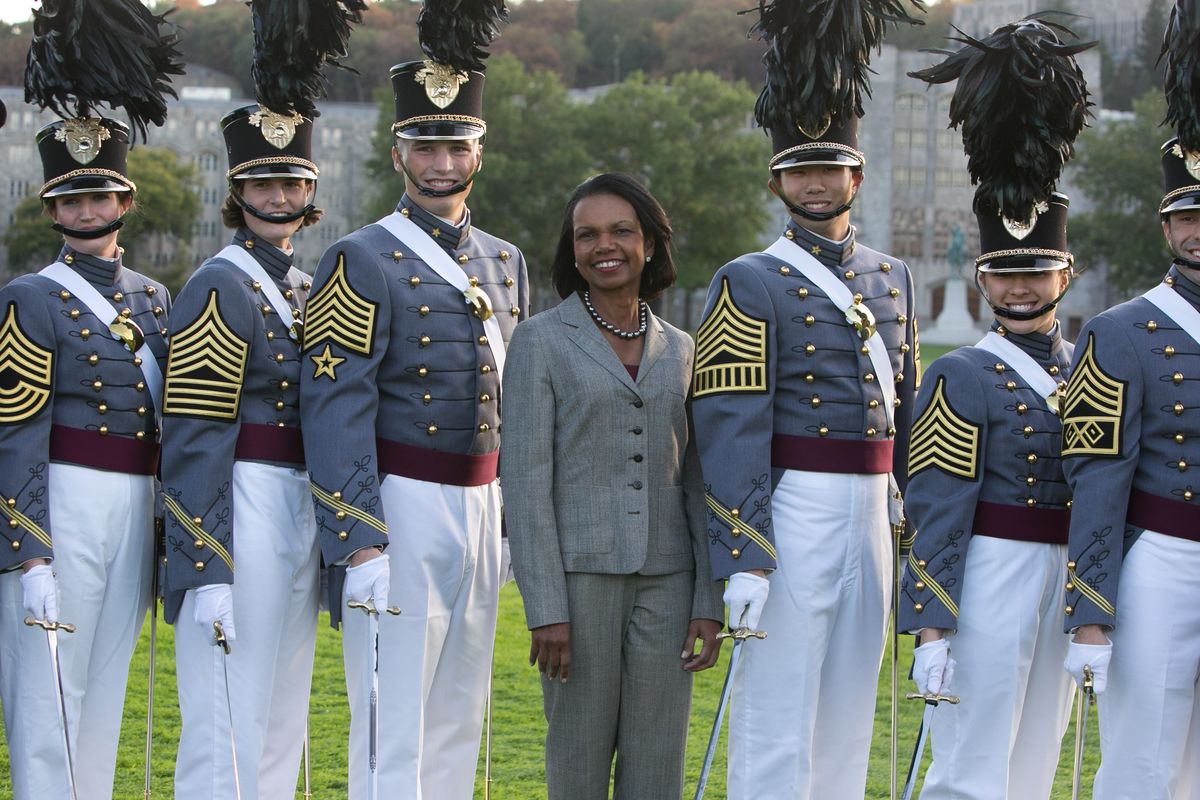Rice speaks to past actions, current world hot spots

Former Secretary of State Condoleezza Rice told a Spokane audience Thursday that the 2003 U.S. invasion of Iraq wasn’t a mistake.
“What we did I would do again,” she said in response to a question by Whitworth University President Beck Taylor.
The mistake, she said, was withdrawing all troops from that country in 2011, which allowed radical groups like ISIS to gain a foothold.
Rice was brought to Spokane by Whitworth University to speak at its President’s Leadership Forum. About 2,000 attended the event at the Spokane Convention Center. While the troop withdrawal is still hotly debated, the absence of weapons of mass destruction – the reason for the invasion – is settled.
Rice told Taylor in a question-and-answer session after her prepared remarks, “Nothing makes me angrier than when people say, ‘You wanted to go to war in Iraq.’ ” The George W. Bush administration believed Iraq posed a security threat, she said.
The former secretary of state and national security adviser’s talk focused on the various trouble spots in the world. She said while it’s tempting to view them separately, they all stem from a series of shocks that started with the Sept. 11, 2001, terrorist attacks and most recently have taken the form of “great powers behaving badly,” like Russia’s expansion into Ukraine.
What’s different, she said, is that since the end of World War II, the U.S. has been the global referee, “willing to say ‘That’s acceptable and that’s not,’ ” and back it up with military power.
She believes that’s missing right now.
“The United States has to send those strong signals again that we will lead and we have a view,” Rice told the audience.
She also touched on “two killers for democracy,” which she said are a sense of entitlement and a perpetual state of being aggrieved.
Citizens have “lost the sense that your own future is in your own hands,” she said.
Taylor, Whitworth’s president, asked Rice about the most controversial aspects of her career in the White House: the invasion of Iraq and the use of “enhanced interrogation” techniques on detainees.
Those actions also were targeted by protesters outside the Spokane Convention Center, who waved placards and chanted.
“Our goal is to tell the truth about Condi’s record and actions,” said Liz Moore of the Peace and Justice Action League of Spokane, one of several groups represented. PJALS charges that Rice and the Bush administration misled the country to go to war in Iraq, and “shamed our country” by approving the use of torture.
But Rice told Taylor that the president secured opinions from the Department of Justice and attorney general that such techniques were necessary and legal.
“The first obligation of the president is to protect the people of the United States, and that is what he did,” she said.
She added, “If I thought it was immoral or illegal or wrong, I would not have done it.”
Rice cautioned against the temptation to withdraw from difficult parts of the world.
“Before we give up on the people of the Middle East, let’s remember democracy’s really hard,” she said. “Democracy takes time. Before we decide those people aren’t fit for it, we better take a look in the mirror and remember how long it took us.”
She noted, for example, that she became secretary of state of a nation that just decades before discriminated against her family in nearly every facet of their lives.
Likewise, she predicted that Russian President Vladimir Putin’s government won’t last as young Russians, who never knew the Soviet Union or Cold War, gain power.
Taylor referenced Rice’s newest job, on the College Football Playoff selection committee, and presented her with his 10 team selections for the playoffs. Rice laughed and said, “My father is thinking in heaven, ‘She finally got a really important job.’ ”